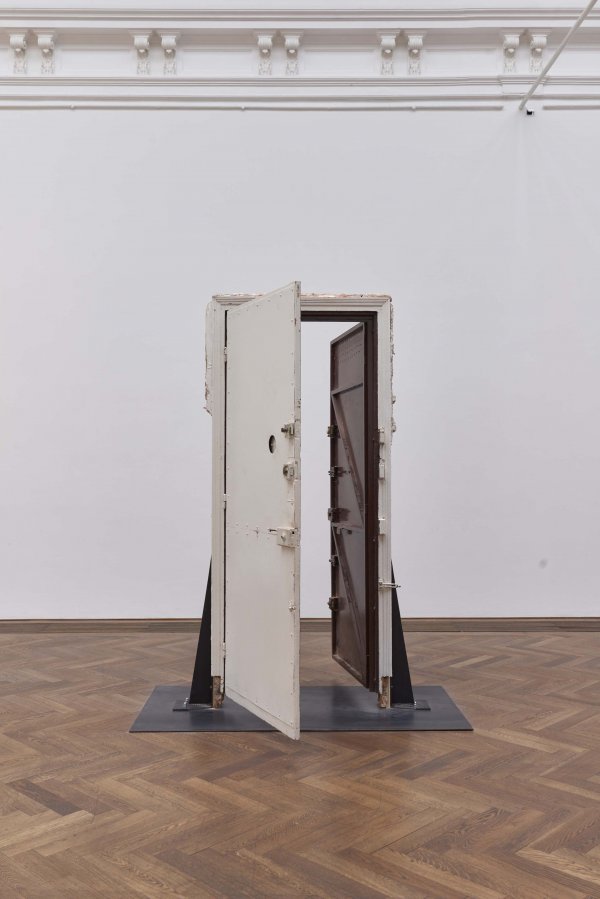Son[i]a #386 Lydia Ourahmane
- 00:01 Let's turn the lights off
- 03:05 Echolocation: thinking about the eco and reverb as way of measuring negative space
- 05:32 Carrara marble quarry: displacement of materials, cavities in nature, brutalist excavations and extractivism
- 06:31 Capital defines how materials are used
- 09:44 Negative space that creates a positive space
- 10:33 Reverb can reproduce space
- 11:33 Relationships can be material
- 13:50 Haraga - 'The Burning', 2013
- 19:20 The language of art: another way to speak
- 22:55 'The-Third-Choir', 2014: the process of exporting 20 oil barrels from Algeria to the United Kingdom
- 28:24 'The-Third-Choir Archives', 2014: when the documentation and bureacracy become part of the piece
- 29:30 The power of an object, the integrity of matter
- 30:28 Objects and the weight of movement
- 31:27 ‘Barzakh’, 2022: the inhability to move
- 34:21 The colonial architectural plan in Algiers
- 37:34 Two doors: traversing emblems of fear
- 38:50 ‘Barzakh’: the space in between
- 40:56 What is home in the fist place? Performing death and care
- 43:53 Reassembling to understand; love performed back home
- 45:20 Extending trust, disabling the mechanisms of fear
- 48:54 Letting go
- 50:40 Growing up in a community
- 51:53 Deep unrest and a way for people to find another way out
- 55:44 The unexplainable
- 57:54 Believe is fragile
- 59:50 ‘A flat, B flat’: failing as a potential to create a perfect harmony
- 61:43 ‘sync’, 2022: a heartbeat that synchronises
- 65:45 Myth making
- 68:03 Stories, myths and death

Lydia Ourahmane is an Algerian-born multidisciplinary artist who has spent much of her life in the UK. In her installations and interventions, the notions of object and subject—considered separate in Western thought—converge and dialogue between the public and private, the alien and borrowed, migration and extractivism, everyday life and the affective materiality of things. By moving certain objects from places that are geographically far apart, kept separate due to capitalist, colonial and border policies, she challenges the institutional structures of museums and embassies, where logistics, bureaucratic processes and surveillances can become part of the work and of future archives. The forces of spirituality and the desire to communicate the ineffable underpin her work in an ongoing attempt to transcend time and space, paying attention to the histories that materials and objects invoke.
In this podcast we talk (in total darkness) to Lydia about her relationship with echo as a phenomenon for the creation of negative space, about listening as a trigger for singular experience and the necessary interval between one word and another, between the emission of a word and its resonance. We follow the import journeys of empty oil barrels from Algeria to England and explore the care of friends and family that was activated during the pandemic in moving from her flat in Algiers for an exhibition. We also talk about her connection to spirituality through her family experience, a community persecuted for its faith in her home country. Finally, we hear some open questions about the idea of home, belonging and freedom, and about the miraculous, the unexplained and the absolute.
Conversation: Violeta Ospina, Noela Covelo and Anna Ramos. Script and sound production: Violeta Ospina. Voice over: Javiera Cadiz. Sounds: bat recordings in Barcelona.
Image: Lydia Ourahmane "Barzakh", 2022. Courtesy of the artist
